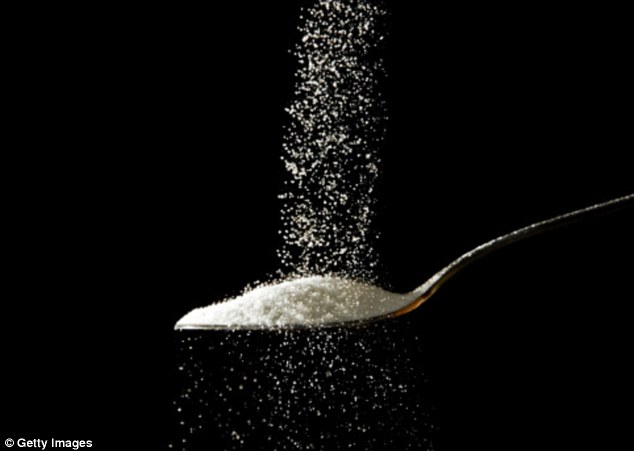-
Tips for becoming a good boxer - November 6, 2020
-
7 expert tips for making your hens night a memorable one - November 6, 2020
-
5 reasons to host your Christmas party on a cruise boat - November 6, 2020
-
What to do when you’re charged with a crime - November 6, 2020
-
Should you get one or multiple dogs? Here’s all you need to know - November 3, 2020
-
A Guide: How to Build Your Very Own Magic Mirror - February 14, 2019
-
Our Top Inspirational Baseball Stars - November 24, 2018
-
Five Tech Tools That Will Help You Turn Your Blog into a Business - November 24, 2018
-
How to Indulge on Vacation without Expanding Your Waist - November 9, 2018
-
5 Strategies for Businesses to Appeal to Today’s Increasingly Mobile-Crazed Customers - November 9, 2018
The Sugar Industry Paid Scientists to Vilify Fat
Recently released internal documents from the sugar industry show that about 50 years of research has been biased by the industry; in the 1960s, an industry trade group called the Sugar Research Foundation (now the Sugar Association) paid researchers to downplay the dietary hazards of sugar while pointing to saturated fat as the culprit for coronary heart disease, shaping the conversation around sugar for decades afterwards, according to new research published Monday in JAMA Internal Medicine.
Advertisement
According to the documents, SRF paid three Harvard scientists $6500 ($48,900 in 2016 dollars) to publish a 1967 review of research on sugar, fat and heart disease. That involved the Sugar Research Foundation paying the equivalent of $50,000 in today’s dollars to Harvard researchers who published in the New England Journal of Medicine, all the while discussing their process and sharing drafts with the Sugar Research Foundation.
New research has been published refuting that fat is what leads to coronary artery disease. The association cited a 2014 JAMA study that found a significantly increased risk of cardiovascular disease from high added sugar intake.
“Let me assure you this is quite what we had in mind and we look forward to its appearance in print”, wrote an employee of the sugar industry group to one of the authors.
We’ve slowly been figuring out that “sugar is the new fat”.
The Harvard researchers did not disclose they had been paid by the Sugar Research Foundation since the New England Journal of Medicine did not require researchers to disclose their funding until 1984. “Yet, health policy documents are still inconsistent in citing heart disease risk as a health outcome of added sugars consumption”.
The UCSF team disputes that, noting health policy has since begun to address sugar’s role in heart disease. The incriminating new research is based on thousands of pages of correspondence and other documents in archives at Harvard, the University of IL and other libraries, found by investigator extraordinaire, Cristin E. Kearns, a postdoctoral fellow at U.C.S.F.
Because saturated fat became the villain, sugar was able to skate by with only the mildest of rebukes as a possible factor in tooth decay because of its empty calories. Kearns and her colleagues followed a paper trail of historical documents from large checks written by players in the sugar industry to a research review that downplayed the link between sugar and heart disease.
The SRF’s vice president and director of research, John Hickson, proposed that the SRF “could embark on a major program” to counter “negative attitudes toward sugar”. The powerful role of food companies in the outcomes of research has been uncovered recently by investigations into candies companies and Coca-Cola.
Companies say they adhere to scientific standards, and many researchers feel that industry funding is critical to advancing science given the growing competition for government funds. But critics say such studies are often thinly veiled marketing that undermine efforts to improve public health. And, while those scientists are no longer alive, their impact was far-reaching. Although funding disclosures are now common practice in the scientific community, the role sponsors play behind the scenes is still not always clear.
The association also questioned the motives behind the new paper.
Advertisement
In November, the AP also reported on emails showing Coca-Cola was instrumental in creating a non-profit that said its mission was to fight obesity, even though the group publicly said the soda maker had “no input” into its activities.





























